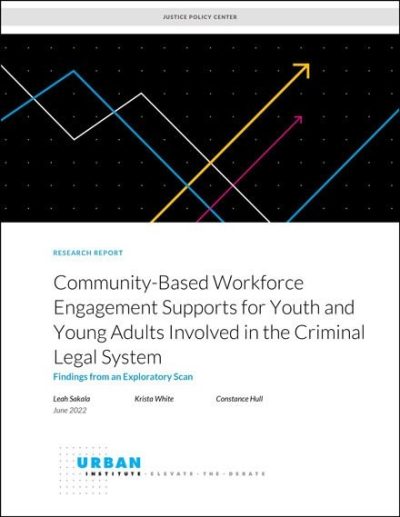Top Support Services
Survey respondents identified the most common program elements offered to justice-experienced youth. These were: job search assistance, career readiness, and soft skill development.

Young people, ages 16 to 24, can face significant barriers to employment once they cross paths with the juvenile or criminal legal system. Accessing supportive services in a community-based setting can help.
This report, released by the Urban Institute, summarizes findings from an exploratory study of community-based workforce development programs. The study involved both a national survey and a series of follow-up interviews with staff members who work with youth who have been adjudicated for or convicted of serious offenses.
Researchers focused their efforts on supports that are available in a community setting — not in an institution — and asked survey respondents and interviewees to provide information on the strategies they use to engage young people with justice system experience.
Participant answers point to a variety of strategies in use, including engaging in multisector partnerships, offering a wide range of workforce- and non-workforce-related supports, measuring progress and success, blending funding from multiple sources and tailoring services to meet an individual’s unique needs.
Despite utilizing different strategies and structures, the programs surveyed shared the same general aim: To support youth and young adults at a critical time in their lives and help them navigate the range of challenges associated with legal system involvement that can hinder workforce engagement.
The study and its findings underscore the importance of providing flexible service models, building a supportive organizational framework and forging the right partnerships. With the right structure and strategies in place, community-based programs can serve as powerful difference makers and — as the research indicates — help justice-experienced youth set, pursue and achieve their employment goals.
In this report, researchers identified key engagement strategies that workforce development programs are using to forge meaningful ties to justice-involved youth. These strategies include:
We hope you'll find value in this report. We’d love to get a little information from you, which we'll use to notify you about relevant new resources.